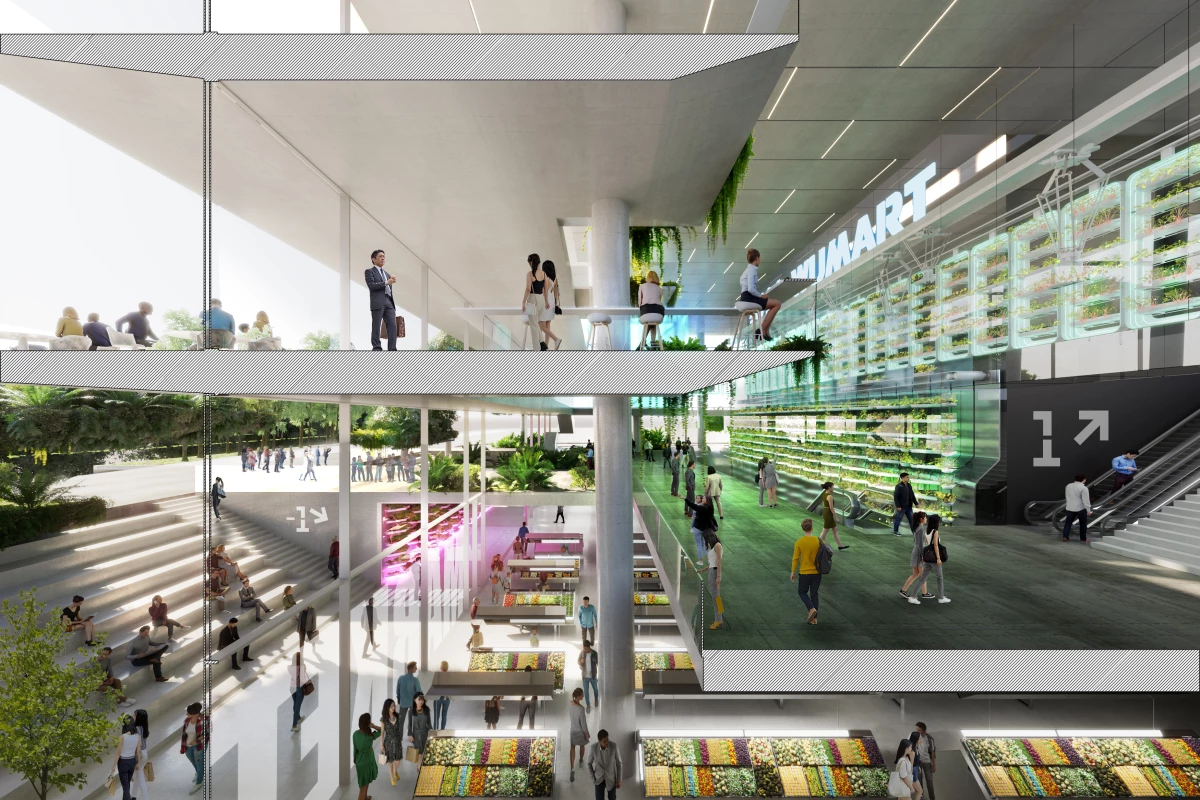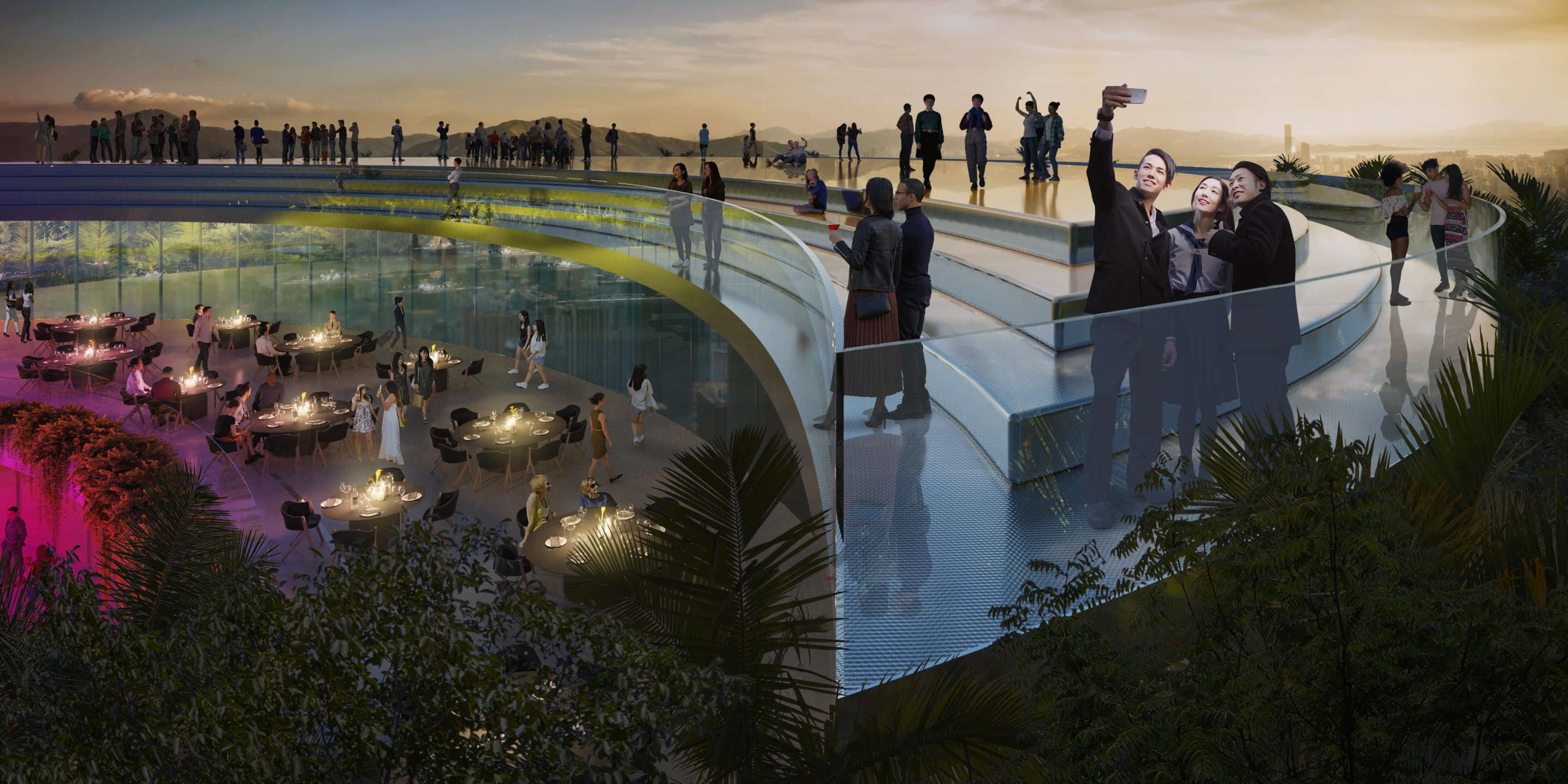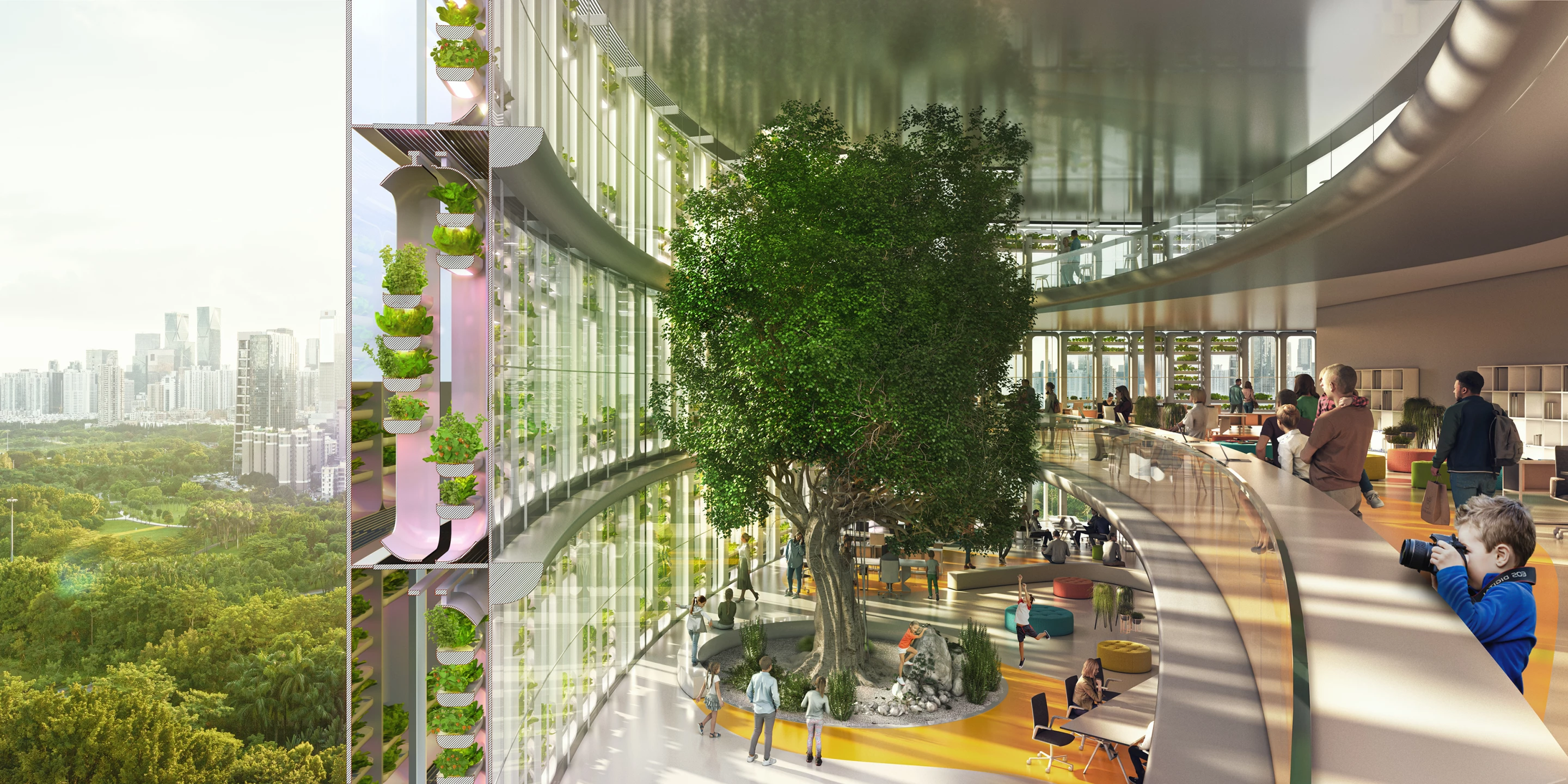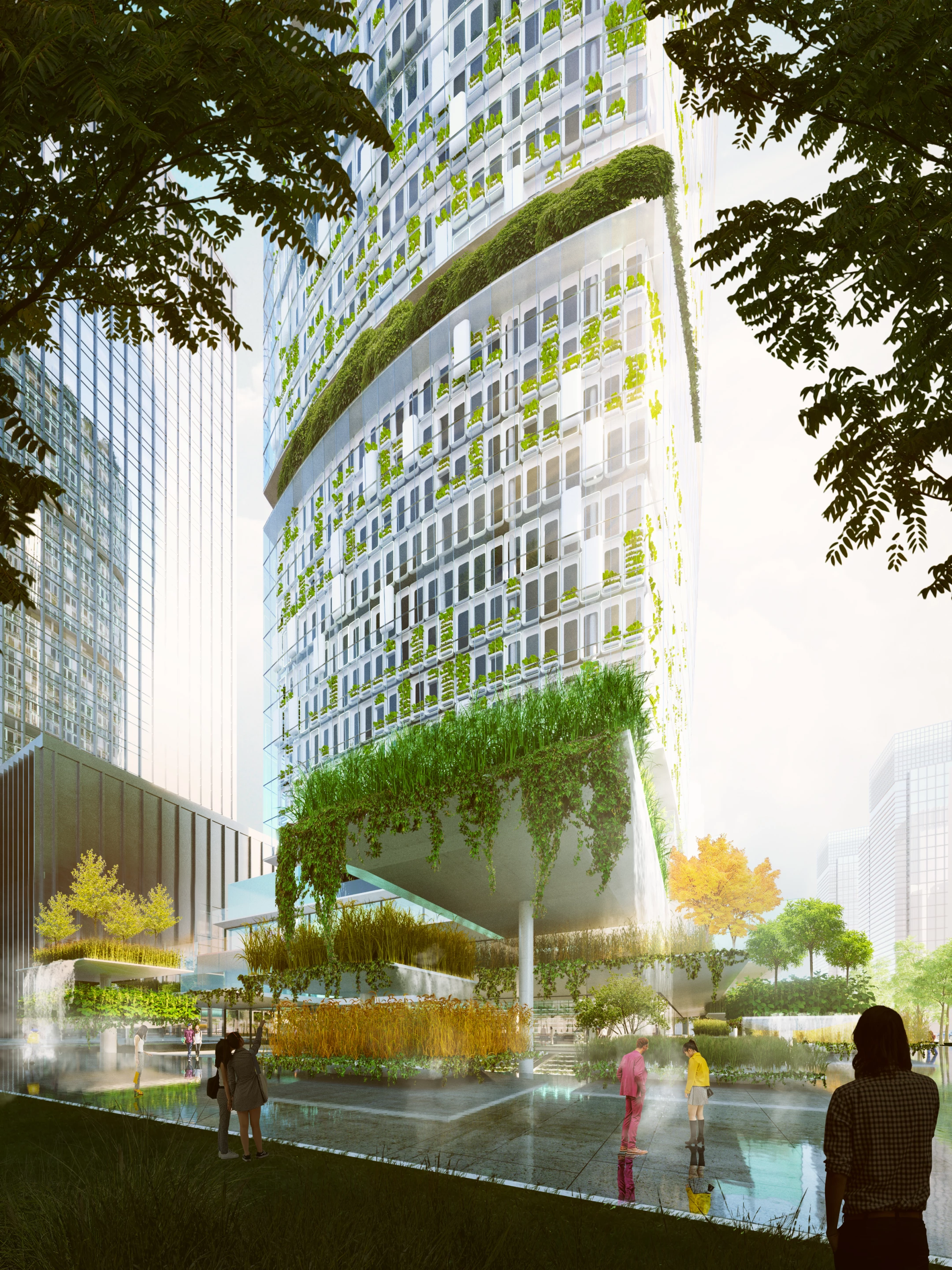Greenery covered skyscrapers have become fairly commonplace in recent years, but what if, as well as bringing some nature into cities, they could also be used to grow food? Such is the thinking behind the "Farmscraper" by Italy's Carlo Ratti Associati (CRA), which the firm says could feed up to 40,000 people a year.
The Farmscraper, which has the official title of Jian Mu Tower, would rise to a height of 218 m (715 ft) in Shenzhen, China. Most of the available floorspace on its 51 floors would be given over to office space, though it would also include a food court and supermarket, and would be topped by a rooftop terrace area.
Additionally, a lot of its glazed facade would be used for the hydroponic cultivation of crops, producing an ambitious yield per year.
"Jian Mu Tower occupies the last plot available in Shenzhen's Central Business District, therefore completes the skyline of the area's central axis," explains CRA. "The 218-meter-high tower dedicates 10,000 sq m [roughly 107,00 sq ft] of space on its facade to the cultivation of crops. The vertical hydroponic farm will produce an estimated 270,000 kilograms [almost 300 tons] of food per year, enough to cover the needs of roughly 40,000 people. Jian Mu Tower establishes a self-sustained food supply chain, encompassing the cultivation, harvest, sale and consumption of crops, all inside the same building. In addition, the tower will house offices, a supermarket, and a food court."
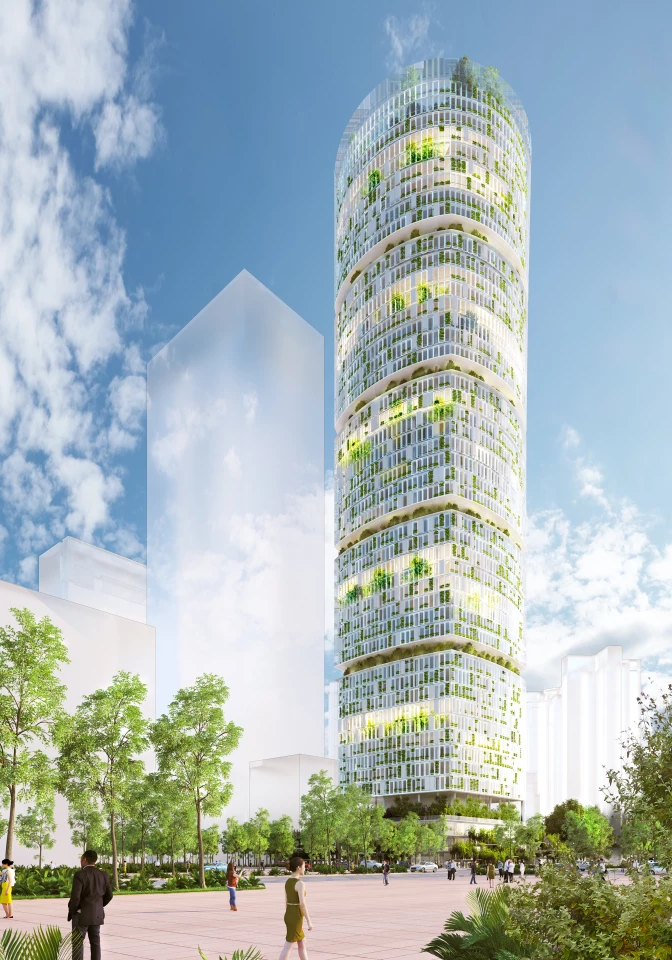
Other notable features would include a series of landscaped terraces hosting water lily, fern and lychee, with greenery filled gardens available for office workers to relax. Additionally, all that greenery would help shade the interior and reduce air-conditioning requirements.
The Jian Mu Tower was commissioned for an international competition by Chinese supermarket company Wumart and would also involve Italian specialist agriculture firm Zero and engineering firm Arup.
As of writing we're awaiting confirmation on whether there's any likelihood of this one going ahead, so for now we'd guess that like CRA's similarly named Playscraper, it's best taken as food for thought.
Source: CRA
